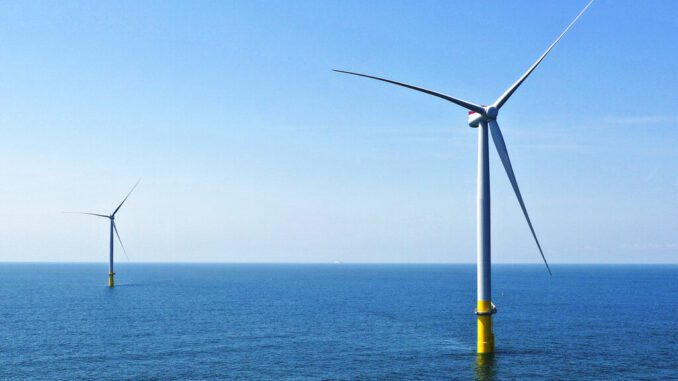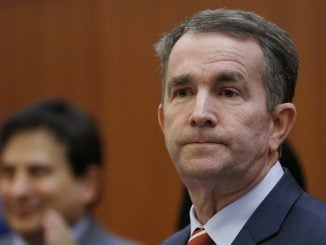
RICHMOND, Va. — As Virginia-based Dominion Energy seeks to build what it calls the country’s largest offshore wind farm in the Atlantic Ocean, the company and its supporters have touted the economic development opportunities expected to accompany the 176-turbine project.
But state regulators, who are currently considering whether to grant approval for the massive project, say the economic picture might not be so rosy.
In testimony filed earlier this month, regulators said that in claiming the wind farm will create jobs and tax growth, the company relied on a “stale” study that didn’t account for the impact of its Virginia electric utility ratepayers bearing the cost of the nearly $10 billion project. The State Corporation Commission’s own analysis found the project was expected to come with an economic cost — including 1,100 lost jobs in the first five rate-years of the project — that might negate any “speculative” benefits.
“Any economic benefits that are likely to arise will do so as a result of new investment in industries in Hampton Roads and Virginia that support offshore wind facility development. The degree to which this new investment occurs is speculative,” according to the commission analysis from Mark Carsley, a utilities manager in the division of public utility regulation.
In a rebuttal filing Friday, Dominion took issue with Carsley’s testimony and argued that under a 2020 law called the Virginia Clean Economy Act, or VCEA, that helped pave the way for the wind farm, such a cost-benefit analysis doesn’t need to be considered.
Dominion’s wind farm, which would be located about 27 miles off the coast of Virginia Beach, has been years in the making. The company announced its specific plans for the commercial-scale project in September 2019. At the time, Dominion had a two-turbine offshore wind pilot project underway.
Dominion then filed its application for the full project with the commission in November. Interested parties ranging from the Sierra Club to Walmart have since joined the case as intervenors, and an evidentiary hearing is set for May 17. The commission’s decision on whether to approve the project and allow the costs of it to be recovered from ratepayers is due by Aug. 5, a spokesman said, and a separate federal review process is also underway.
The project will help Dominion meet the goals of the VCEA, a sweeping overhaul of the state’s energy policy enacted by Democrats that included a number of renewable energy mandates intended to help address the threats of climate change. The wind farm will also help the company meet its own pledge to reach net zero greenhouse gas emissions by 2050.
The VCEA directed Dominion to submit a plan to the commission for review that addresses the economic development benefits the project is expected to bring to Virginia.
Instead of conducting an independent study, Dominion met that requirement by relying on a study prepared for a nonprofit economic development organization, the Hampton Roads Alliance, Carsley wrote.
The company, citing that report from 2020, estimated the project would support about 900 jobs annually and over $143 million in annual economic output during the construction phase. Once in operation, the report projected the wind farm would create 1,100 jobs and yield $209.8 million in annual economic output.
But SCC staff was not able to verify those results, Carsley wrote. They sought data supporting the conclusions of the report from Dominion and was told the company did not have any such models or data.
The SCC called the report Dominion relied upon “stale” and noted that the cost data it used was derived from data in the United Kingdom.
In a rebuttal, John Larson, Dominion’s director of public policy and economic development, responded that “claiming that the information is ‘somewhat stale’ does not present an argument against reliability of the data or its substantive analysis.”
Larson wrote that relying on UK data should not present a concern and was practical and necessary, given that the U.S. offshore wind industry is nascent. Larson also wrote that the commission’s analysis relied on an “overly simplified” assumption that a rate increase will cause Virginia residents to reduce household spending in other areas.
Some customers might not change their spending if the increase is small, or some might just reduce their savings, he wrote.
Furthermore, nothing in the VCEA requires the company to perform its own analysis of “economic development costs” or requires the commission to consider such an analysis, Larson wrote.
“The General Assembly has established clean energy standards and goals for the Commonwealth and based on the inherent nature of public utility service, there will be customer-borne costs,” he wrote.
Other testimony in the case from outside parties has raised concerns about the project’s price tag and Dominion’s relative inexperience in the offshore wind industry. There have been calls for the commission to consider a range of ratepayer protections, including a possible independent monitor, a performance guarantee and a cost cap.
In rebuttal testimony, a Dominion executive argued against each of those proposals and defended the company as an “an acknowledged leader in the development of offshore wind in the United States.”
Company spokesman Jeremy Slayton said in a statement Monday that Dominion was pleased “all parties to the case have focused on ways to have the best possible project and none have opposed it.”




